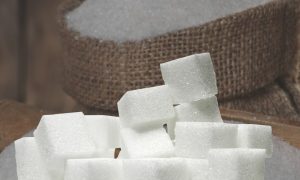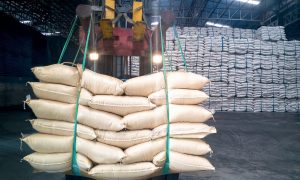US tariff and cheap sugar imports double blow for South African sugar industry

SA Canegrowers has raised alarm over the US’s 30% tariff on South African sugar exports from August 1, warning it could cripple competitiveness in the US market. Already under pressure from cheap, subsidised imports from Brazil, India, and Mexico, the group urges government action to protect local producers and jobs from unfair global trade practices.
SA Canegrowers, which represents 24,000 small-scale and 1,200 large-scale sugarcane farmers, has expressed deep concern over the United States’ decision to impose a 30% tariff on South African sugar exports, effective from 1 August. The organisation warns that this move could significantly undermine the competitiveness of South African sugar in the U.S. market and highlights the urgent need to safeguard the local industry from the continued influx of unfairly priced imports.
According to the association, the South African sugar industry does not pose a threat to the U.S. market, which depends on imports to meet its domestic demand. The US has up until recently had a quota system in place to ensure that the US retains full control over both the volume and price of imported sugar. However, the newly introduced 30% tariff will likely price South African sugar out of the market, especially in comparison to heavily subsidised competitors like Brazil, India, and Mexico.
Higgins Mdluli, Chairman SA Canegrowers in a statement said, “Losing competitiveness in the US market comes at the same time that South African sugarcane growers are under pressure from cheap, subsidised imports flooding into our ports – from the same global competitors. The South African government is, however, in a position to help protect the local sugar market from unfair trade practices, an essential move as the industry supports a million livelihoods across the value chain.”
He stated that the global sugar market is heavily distorted, with some countries providing extensive subsidies and incentives to their sugar producers. This keeps international prices artificially low and results in foreign sugar flooding the South African market at below the cost of local production. South African sugarcane growers cannot compete with these unfairly subsidised imports arriving every day at our ports, particularly as the industry contends with a range of other pressures including erratic weather patterns, mill closures, the Health Promotion Levy (sugar tax) and the 30% tariffs that will reduce revenue from the US. For every ton of imported sugar that enters the local market, the industry loses R6000.
In the 2023-24 financial year, 25,000 tons of sugar were imported from countries outside the Southern African Customs Union (SACU). A year later, that figure surged to over 100,000 tons—and imports are projected to rise even further in the 2025-26 season.
SA Canegrowers is urging the South African government to ensure that the country’s import tariff framework reflects current market realities and helps shield the domestic industry from unfair competition.
The association also noted that subsidised sugar imports do not necessarily translate into lower prices for South African consumers. Instead, importers often pocket the difference, selling sugar at prevailing local prices. This practice displaces local production, threatens jobs, and undermines the sustainability of South African growers. Ultimately, consumers end up supporting foreign producers at the expense of local ones.
With the industry caught between rising international trade barriers and an unprotected domestic market, SA Canegrowers stresses that urgent government intervention is needed.
To Read more about Sugar Industry continue reading Agriinsite.com
Source : Chinimandi
















